Blog
- Blog
- Home
Revolutionizing Indian Agriculture: Mizuchi® and the Sustainable Growth of Eggplants
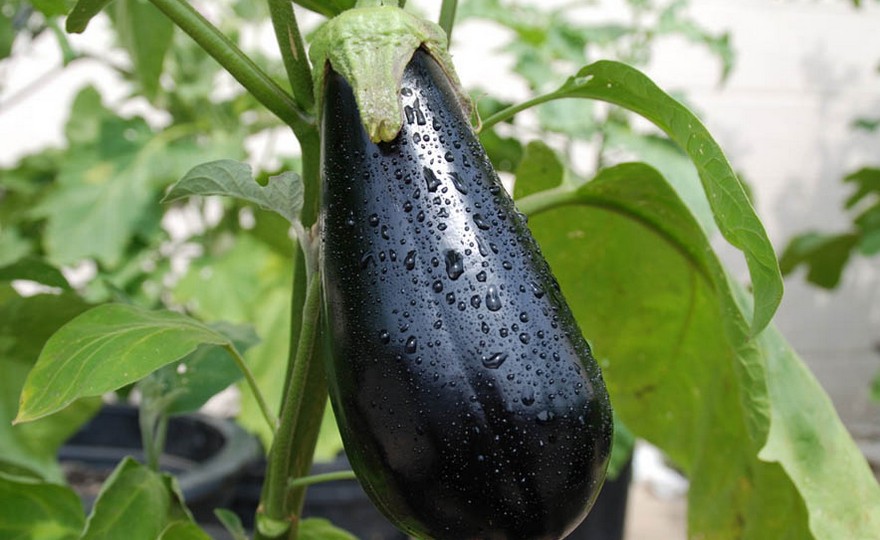
Introduction:
Eggplant, a widely cultivated crop across India, is cherished by both the affluent and the economically challenged. Major states in India that cultivate brinjal include West Bengal, Orissa, Karnataka, Bihar, Maharashtra, Uttar Pradesh, and Andhra Pradesh. In the fiscal year 2023, the volume of brinjal production in India is estimated to have reached approximately 12.61 million metric tons. The fertilizer dose depends on the soil fertility and the amount of organic manure applied to the crop. For a good yield, 15-20 tonnes of well-decomposed farmyard manure is incorporated into the soil. Generally, the application of 150 kg nitrogen (N), 100 kg phosphorus pentoxide (P2O5), and 50 kg potassium oxide (K2O) is recommended for optimum yield.
Challenges and Innovations:
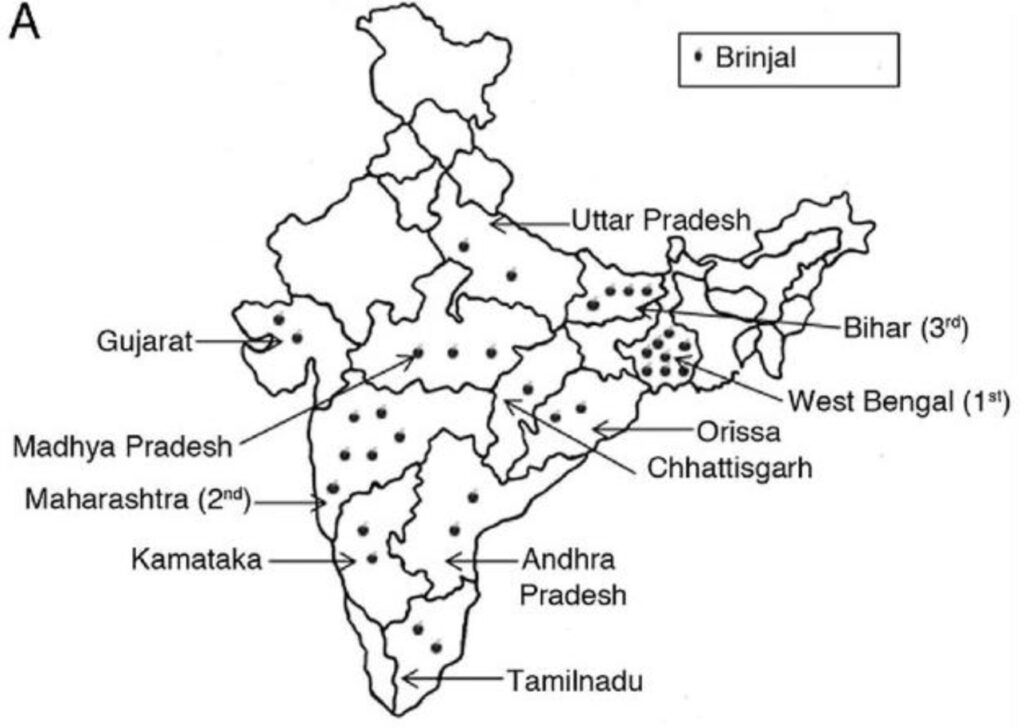
The prevalent reliance on costly chemical and synthetic fertilizers poses a significant hurdle for financially struggling farmers. Moreover, the extensive use of such inputs adversely impacts the quality of both the crop and the cultivated soil. In response to these challenges, innovative approaches have emerged to address both economic constraints and environmental concerns. One such alternative is Mizuchi®, a non-chemical solution derived from bioactive materials found in seaweed fertilizers. Seaweed (Marine algae) extracts have been reported to be beneficial to plants for early seed germination, better plant growth, improved crop yield, and preventing biotic and abiotic stress.
Mizuchi®: A Sustainable Alternative:
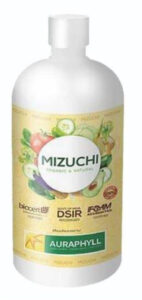
Figure 2 illustrates Mizuchi®, an array of bioactive materials from seaweed harvested in the Indian Ocean.
Figure 2 introduces Mizuchi®, a carefully crafted blend of bioactive materials extracted from seaweed harvested in the Indian Ocean. This natural alternative aims to boost crop vigor, marketable yield, and overall productivity while simultaneously reducing the reliance on chemical fertilizers. The benefits of Mizuchi® include increased water and nutrient uptake, improved 9 produce appearance and quality, higher return on investment, reduced fertilizer requirements, and
induced vigorous growth
How Mizuchi® Works:
Mizuchi® operates as a seaweed fertilizer, promoting resistance to diseases and pests while maintaining the health of leaves and produce. In flowering and fruiting crops, Mizuchi® stimulates increased flower production and facilitates fruit setting, both after natural and artificial pollination. The rapid absorption of Mizuchi® proves advantageous for various crops, spanning vegetables and horticulture, leading to heightened photosynthesis. Additionally, Mizuchi® supplies natural hormones and a myriad of nutrients not present in alternative fertilizer formulations.
Success Stories:
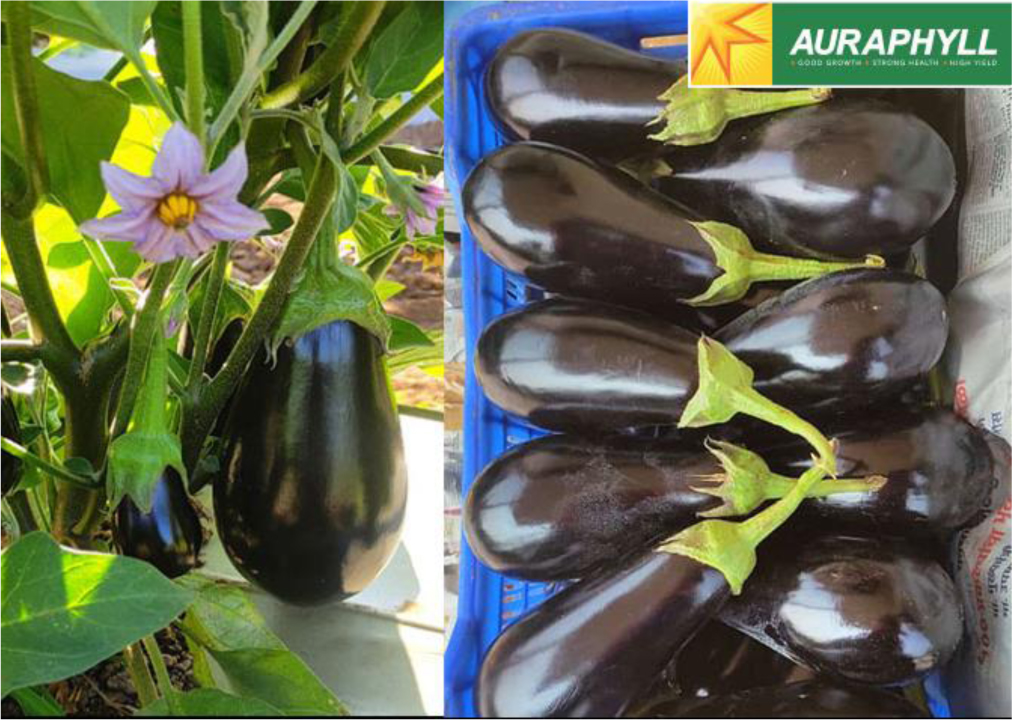
Figure 3 displays eggplants grown by Mr. Amol Jopale from the Dindori district in Nashik, Maharashtra.
Implementing Mizuchi on his eggplant crops resulted in notable improvements in plant growth. The height of the plant increased by up to 14%, leading to more branches and a higher crop yield. The treated plants exhibited large leaf sizes due to the higher length and breadth of the eggplant leaf, favoring efficiency in photosynthesis and water conservation (Figure 4). 10 Improvements in crop yields have been essential to feed a growing population while reducing the environmental impact of food production.
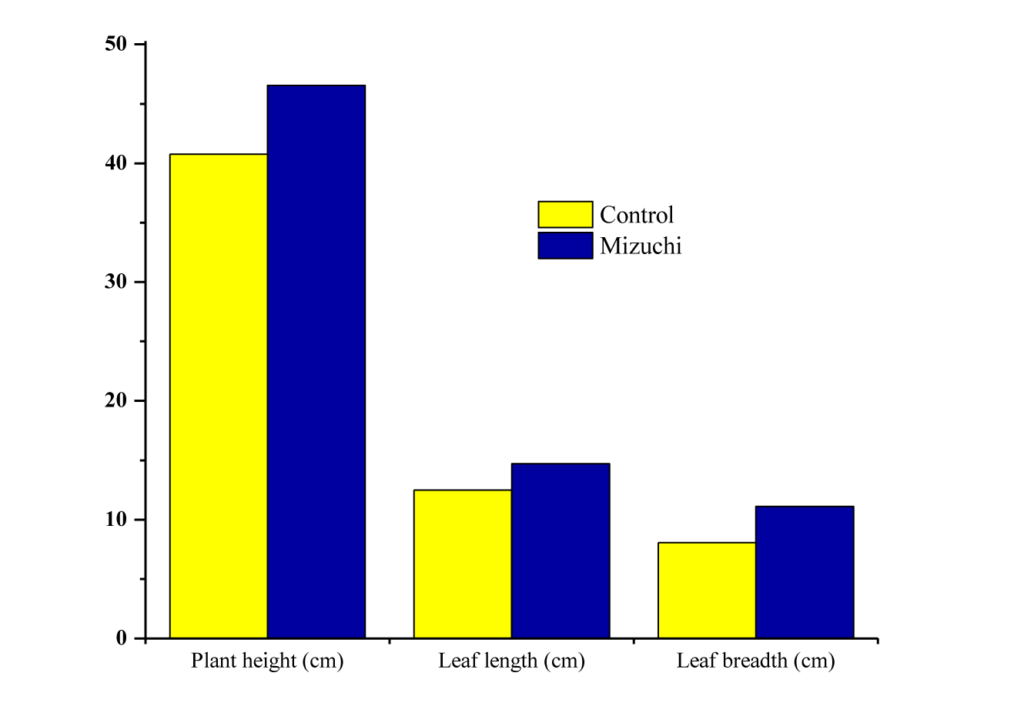
Figure 4 illustrates physical parameters such as plant height, leaf length, and breadth of brinjal after the application of Mizuchi. Data are expressed in cm values, with control and Mizuchi-treated plants shown in yellow and blue, respectively.
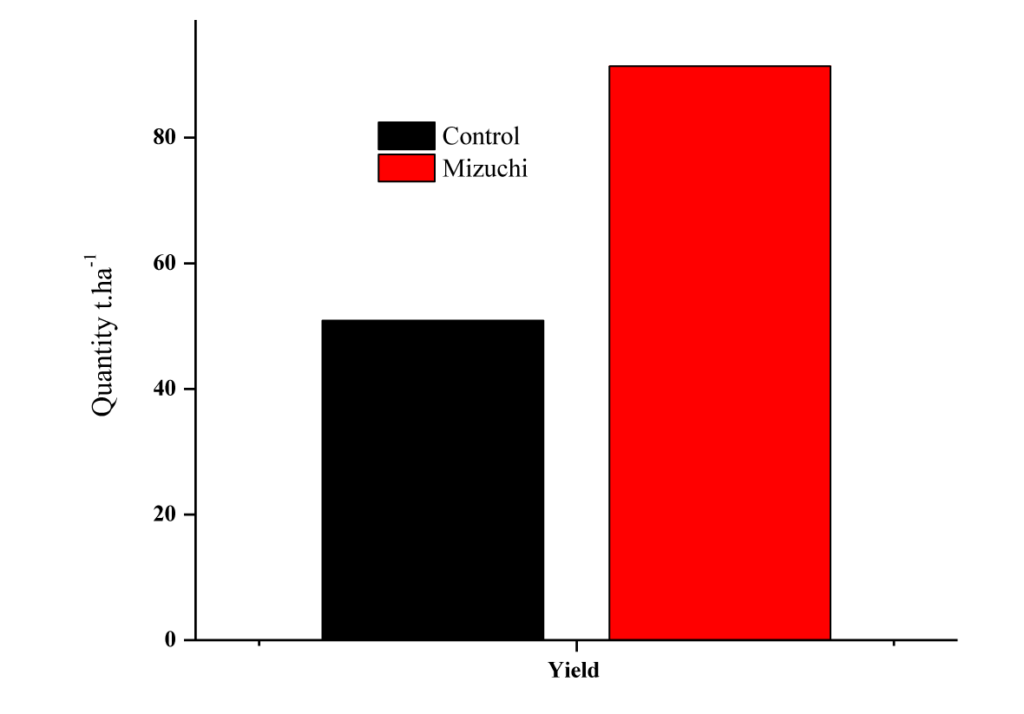
Figure 5 displays yields of brinjal after the application of Mizuchi, expressed in ton per hectare. Control and Mizuchi-treated plants are shown in black and red, respectively.
The popularity of biostimulants in agriculture is associated with the possibility of obtaining higher yields without discontinuing the production of ecological crops. Mizuchi, a natural multifaceted seaweed biostimulant, increases nutrient uptake and improves crop quality. Mizuchi increased yield, with the maximum recorded at 91.41 ± 6.05 t.ha-1 (Figure 5).
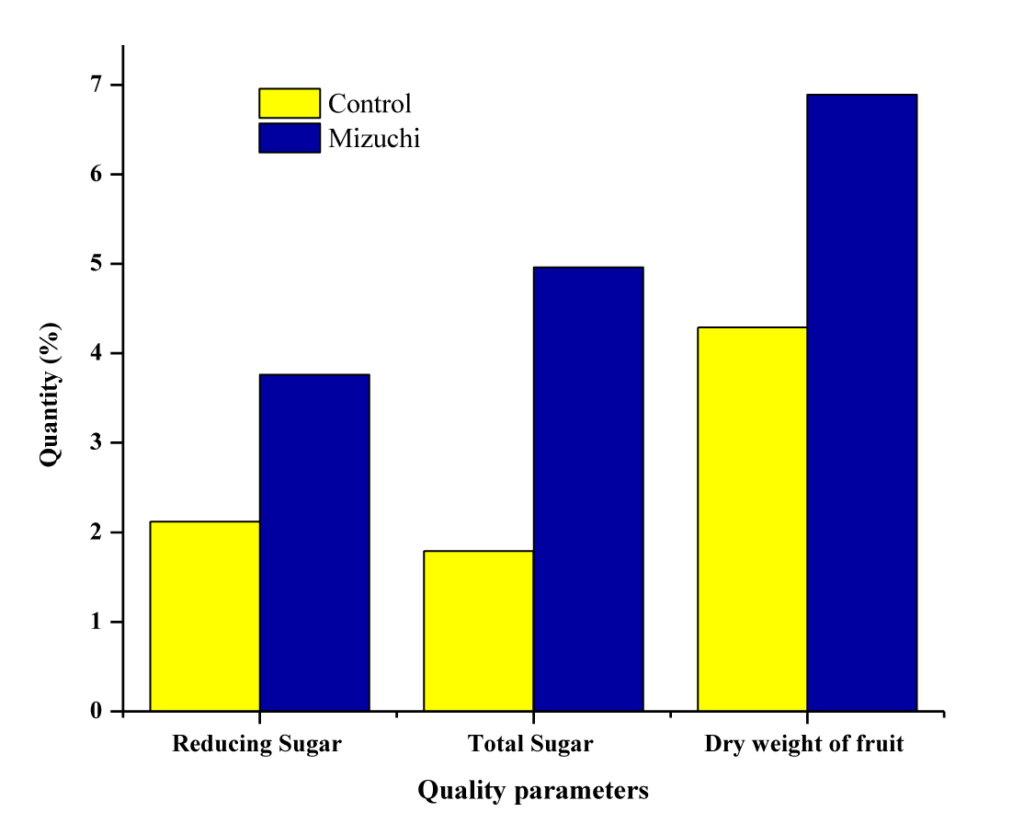
Figure 6 illustrates the quality parameters of brinjal after the application of Mizuchi. Control and Mizuchi-treated plants are shown in yellow and blue, respectively.
Natural preparations of Mizuchi biostimulants increase the efficiency of nutrient utilization and tolerance to abiotic stress, improving the quality of crops. Quality parameters such as reducing sugars, total sugars, and dry weight of fruit content also exhibited optimal performance with Mizuchi. Total sugars increased by up to 177%, with reducing sugars increasing by up to 77.36% compared to the control. In contrast, the dry weight of vegetables increased by up to 60%.
Conclusion
In conclusion, the successful application of Mizuchi in Mr. Amol Jopale’s brinjal cultivation underscores its viability as a highly suitable and effective alternative for promoting Reducing Sugar Total Sugar Dry weight of fruit 0 1 2 3 4 5 6 7 Quantity (%) Quality parameters Control Mizuchi 12 sustainable eggplant farming. The positive impact on crop yield, nutrient utilization, and overall crop quality positions Mizuchi as a promising solution for farmers facing economic challenges while addressing environmental concerns in the agricultural sector. The adoption of such innovative and sustainable practices can contribute to the long-term resilience and prosperity of the farming community.
Recent Post
Contact Details
info@auraphyll.com
